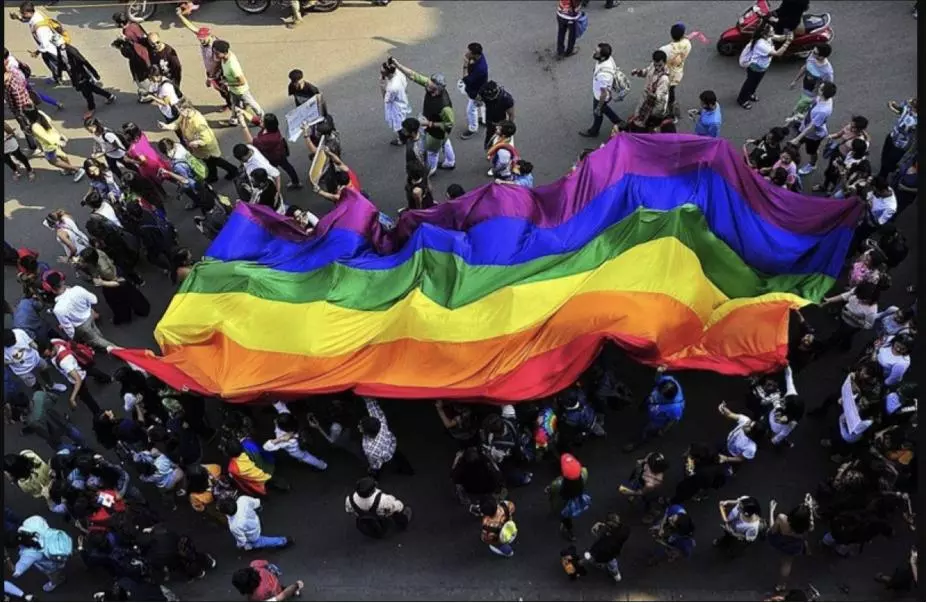
Explained: Why Centre is okay with gay rights but not same-sex marriages

The Centre has opposed the legalisation of same-sex marriages in Supreme Court, saying that the union of persons belonging to the opposite sex is “socially, culturally, and legally ingrained into the very idea and concept of marriage and ought not to be disturbed or diluted by judicial intervention.”
The BJP-led Centre has repeatedly opposed the idea of legal sanction to same-sex marriages, arguing before the Delhi High Court in September 2020 that our “law, society, values don’t recognise marriage between a same-sex couple.”
And yet, not only did the apex court decriminalise consensual gay sex in 2018, the Rashtriya Swayamsevak Sangh (RSS), too, has often championed homosexual and transgender rights. RSS chief Mohan Bhagwat openly supported the LGBTQ+ community in an interview in January, saying they too should have their “private space”.
Despite that, the Hindu body, and the central government backed by it, have refused to extend that support to their right to marry. Why is that so?
Why is the government opposed to same-sex marriages?
For one thing, the government has repeatedly differentiated between personal rights and the “institution” of marriage, which also has many legal repercussions.
“Living together as partners and having sexual relationship by same-sex individuals is not comparable with the Indian family unit concept of a husband, a wife and children which necessarily presupposes a biological man as a ‘husband’, a biological woman as a ‘wife’, and the children born out of the union between the two — who are reared by the biological man as father and the biological woman as mother,” the Centre has stated in its affidavit.
“Depending upon the personal laws applicable, the nature of marriage as an institution is different. Amongst Hindus, it is a sacrament, a holy union for performance of reciprocal duties between a man and a woman. In Muslims, it is a contract but again is envisaged only between a biological man and a biological woman. It will, therefore, not be permissible to pray for a writ of this Hon’ble Court to change the entire legislative policy of the country deeply embedded in religious and societal norms,” the government has argued.
What do the petitions say?
The petitioners have mostly sought the recognition of same-sex marriages under the Hindu Marriage Act (HMA) or the Special Marriage Act (SMA), which is a secular law.
In a plea filed in 2020 in Delhi High Court, the petitioner argued that the HMA does not distinguish between heterosexual and homosexual marriages in its wording since it uses the words “between any two Hindus” and does not mention the gender.
Also read: SC transfers all pleas seeking legal recognition of same-sex marriages to itself
Those who have sought recognition under SMA have also pointed out the gender-neutral wording. In fact, SMA is even more liberal with its wording, which says “a marriage between any two persons may be solemnised under this Act”.
The legal implications
While the petitioners have sought the legalisation of same-sex marriages to enjoy certain rights that marriage brings along, the government has pointed out exactly these to argue against the idea.
Marriage allows a couple the right to buy property in joint names, own joint bank accounts, and lockers, and nominate each other in insurance, pension, and gratuity papers. Spouses are legally eligible to receive pension in the case of death or disability of the other spouse. Intestate succession laws allow the wife to get an equal share in her husband’s property along with her children upon his death, while a husband gets a share in his wife’s personal property following her death, though not her ancestral property.
While four gay couples have pleaded in Supreme Court that without legal recognition of same-sex marriages, they cannot have access to certain rights, including adoption, the government has admitted in its affidavit that doing so would lead to complications in all these laws, including adoption, divorce, maintenance, inheritance, etc. All statutory provisions related to these are based on a union between a man and a woman, and it is impossible to make these work in a same-sex marriage, it has argued.
What about fundamental rights?
The Centre has argued in its affidavit that the non-recognition of same-sex marriages does not breach any fundamental rights under Part III of the Constitution and cannot be termed discrimination under Article 15(1) either.
“While it is certainly true that all citizens have a right to association under Article 19, there is no concomitant right that such associations must necessarily be granted legal recognition by the State. Nor can the right to life and liberty under Article 21 be read to include within it any implicit approval of same-sex marriage,” the government has submitted.
Also read: Centre opposes same-sex marriages in SC citing ‘Indian family unit concept’
“While a marriage may be between two private individuals…, it cannot be relegated to merely a concept within the domain of privacy of an individual when the question of formalizing their relationship and the legal consequences flowing therefrom is involved. Marriage, as an institution in law, has many statutory and other consequences under various legislative enactments. Therefore, any formal recognition of such human relationship, cannot be regarded as just a privacy issue between two adults,” the Centre has argued.
(With agency inputs)

